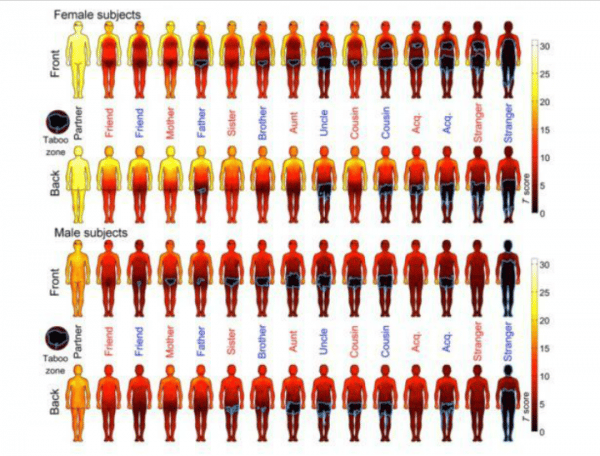
By Dan Smith.
Men are more comfortable with a female stranger’s touch than that of a relative of either sex, according to a study that surveyed over 1,300 people from five countries to create an illustrated “body map”.
The research, conducted by scientists at the University of Oxford and Finland’s Aalto University and to be published this week in the journal Proceedings of the Royal Academy of Sciences, asked participants from Britain, Finland, Italy, France and Russia where they would allow particular people to touch them.
A “body map” was then created, showing where people were most comfortable with being touched and by whom.

The study found British people were less comfortable with touching than those from the other countries while Finns were the most comfortable, with Italians were only slightly more comfortable with touching than the British.




























































































